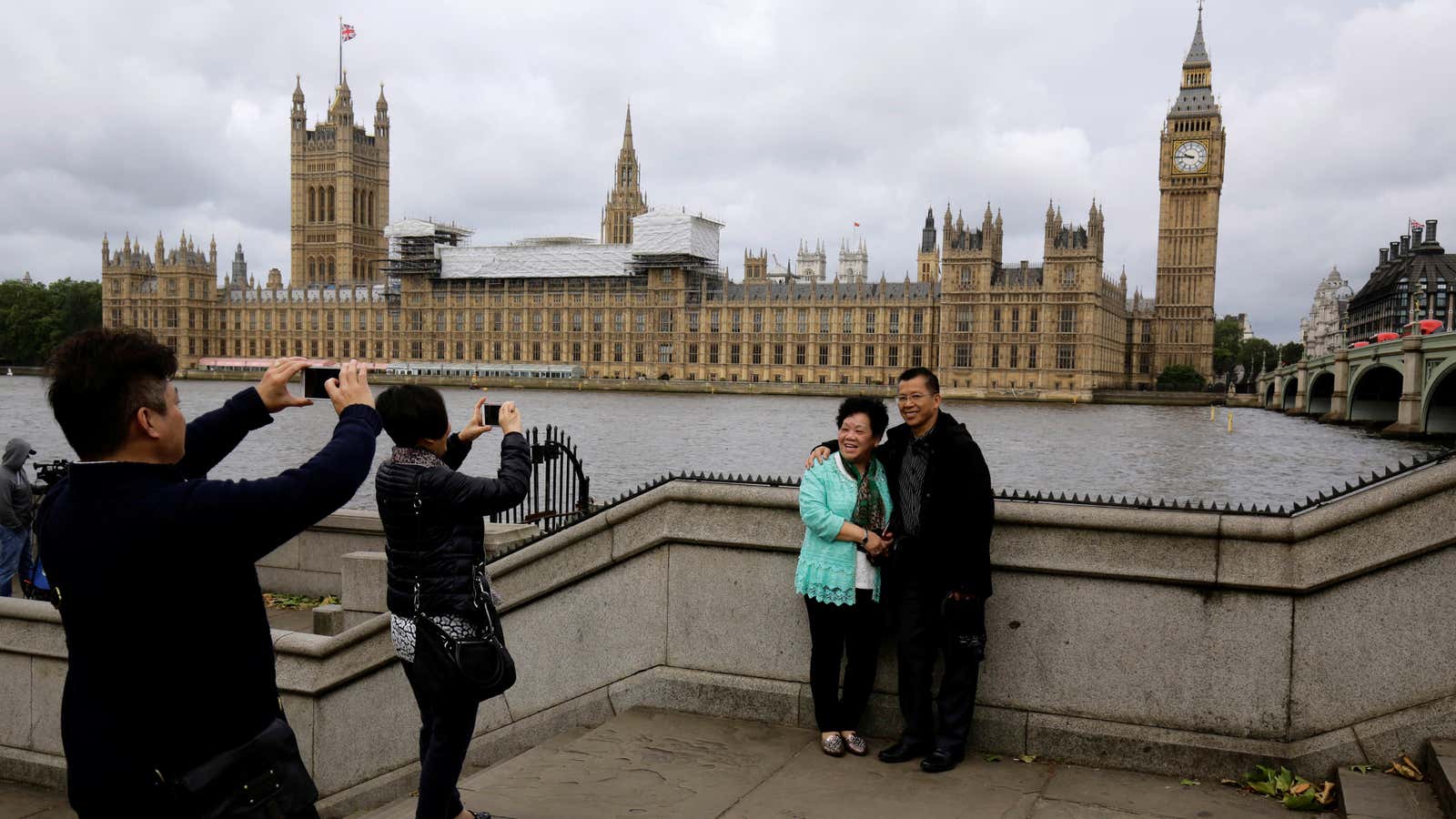Since UK’s Brexit vote on June 23, interest in travel to London has spiked. Shopping in the city is one of the big draws, and since Britain’s vote to leave the European Union, it’s as if the whole country’s goods are on sale for anyone shopping with foreign currency.
That’s because the Brexit vote sent the value of the pound crashing. Yesterday (July 5), it fell to below $1.31 against the US dollar, bringing it to a low it hasn’t seen in 30 years. This has created a rush of foreign buyers looking for bargains. But while this may bring UK companies a bump in spending now, the long-term outlook is far less rosy.
British retailers, especially in the luxury sector, seem to already be seeing a surge in sales. Burberry, which gets about 60% of its UK revenue from tourists, hasn’t reported any sales figures, but research by Edited, a retail technology company, found that in the week after Brexit, the brand saw a 50% increase in full-price sellouts online compared to the previous year. British luxury retailer Matches saw a 90% increase. (Globally, by contrast, Edited says full-price sellouts online were down 48% last week compared to the previous year, as uncertainty appears to be stifling luxury purchases.)
These trends are likely to continue for at least a short while, as long as the pound remains low. But the picture changes once—or perhaps if—Britain exits the EU.
That’s partly because there’s no group of tourists that shop more for high-end goods than the Chinese. In the short term, Chinese tourism might increase—Bloomberg reports that Chinese travelers could have saved as much as 40% by switching travel plans from Japan to Europe or the UK in the days just after Brexit—but additional visa and customs hassles to visit the UK could dampen Chinese tourism in the future.
That has has been the case with Europe’s new biometric visas, which have deterred enough Chinese travelers to hurt luxury labels’ sales. As Daniel Meesak, COO of the China Outbound Tourism Research Institute, explained in a piece for Jing Daily, if the UK actually leaves the EU, Chinese and other tourists would have to pay customs duties and VAT when crossing back and forth between the UK and European Union, which could deter tourists on multi-country trips from shopping in the UK. ”Perhaps even more likely, however, is that the UK would simply excluded from such travelers’ itineraries,” he writes.
And there’s another challenge. Any new tariffs on goods from Europe would raise costs for luxury labels that manufacture or source materials from countries such as Italy and Portugal. If the pound stays cheap, it also could make it more expensive for British brands that produce outside the country—in Asia, for instance. UK brands could then be forced to raise prices, eliminating some of the discounts drawing shoppers now.
So if you want a bargain shopping spree in the UK, do it soon. In all likelihood, this sale is for a limited time only.
Correction: An earlier version of this article incorrectly stated that, once the UK leaves the European Union, travelers from the EU to the UK would need a visa not already required. But a visa is already necessary for travel to the UK. The additional burden would be customs duties and VAT.




